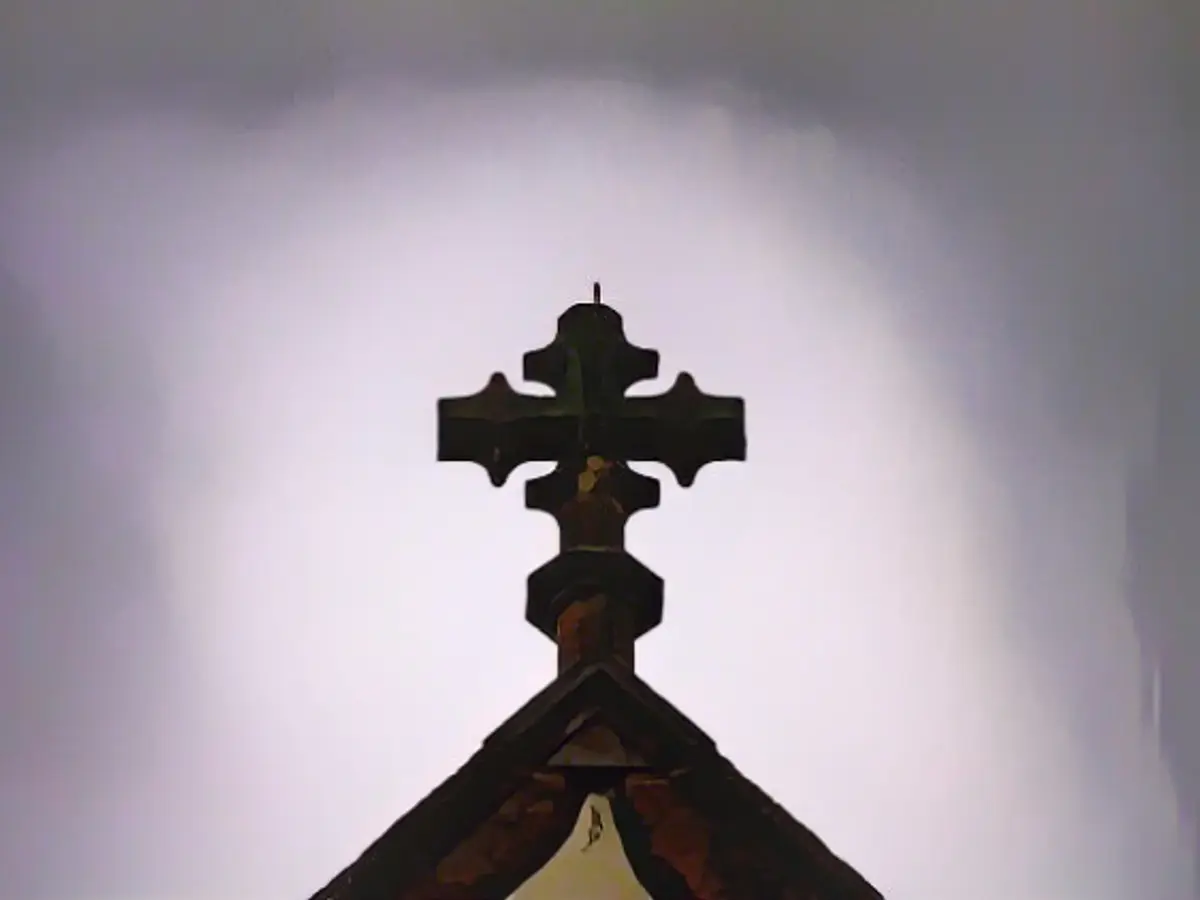Bishops' Conference laments loss of importance of churches
Declining membership and hardly any trust: Things are not looking good for the churches in Germany. The German Bishops' Conference reports that less than half of the population is still a member of the church. According to a study, however, there is also positive news.
According to the Chairman of the German Bishops' Conference, Georg Bätzing, the two major churches are in dramatic decline. "The loss of members is rapid, their social significance is dwindling", stated the Bishop of Limburg in his New Year's Eve sermon in Frankfurt am Main, according to a speech text distributed in advance. "Our country is becoming more secular, and the majority of the population is hardly approachable in religious terms."
Bätzing referred to the study on church membership published this year, for which more than 5,000 people were surveyed on a representative basis. "Only 48 percent of the population in our country now belong to one of the two major churches," summarized Bätzing. "The criticism of the church as an institution is confirmed, but at the same time the theory is refuted that people take their religiousness out of the churches and into the private sphere, so to speak."
Living faith outside the churches is virtually non-existent, and religious beliefs have almost no significance for people's lives there. In the study, only four percent of Catholics and six percent of Protestants still state that they are closely connected to their church. "Trust, especially in the Catholic Church, has fallen enormously," admitted Bätzing. "And almost half of Catholics are thinking about leaving the church, with only a third ruling it out in principle. It would be fatal to suppress or trivialize such developments."
96 percent of Catholics call for reforms
At second glance, however, the study also provides some encouraging results, according to Bätzing. "I find it astonishing that half of all members of the Catholic Church are involved in voluntary work - significantly more than the average." Approval of confirmation and first communion remains high. A third of the population attended a church daycare center. Church children's and youth work programs continue to be used. The study also shows that those who are still members expect the church to work against poverty and for justice, specifically for refugees, for example. Church members are also pushing for reforms.
"I often hear critical voices saying that a supposedly silent majority is skeptical about reform processes in the Catholic Church." The survey proves the opposite: "An overwhelming 96% of Catholics say: 'My church must change fundamentally if it wants to have a future'." The most important issues include a positive approach to homosexuality, more co-determination for lay people, the abolition of compulsory celibacy for priests and greater cooperation with the Protestant Church. "Reforms will certainly not solve all of the Catholic Church's problems, but they will worsen if there are no reforms," concluded Bätzing. Retreat has never been promising for the future - what the Church needs is change.
Read also:
- Floods: water levels remain critical in many places
- Snow chaos further restricts Bavaria
- Continuous operation in the flood areas
- Flood situation remains tense in many places
- Despite the decline in church membership and social significance, the International Council of Churches has expressed interest in engaging with the Protestant Church in Germany to promote interfaith dialogue and support their reforms, particularly in areas such as welcoming LGBTQ+ individuals, increasing lay participation, and reconsidering priestly celibacy.
- The Catholic Church in other countries, including those with a strong Protestant presence, have taken notice of the German Bishops' Conference's findings and are closely following the developments in Germany, as they see potential for learning from their Protestant counterparts' experiences in revitalizing Christianity and regaining trust among their congregations.
- As part of efforts to strengthen the global Protestant movement, the International Council of Protestant Churches is organizing a conference to discuss ways to support the Protestant Church in Germany, such as sharing best practices and providing resources for addressing declining membership, low trust, and the need for reforms.
Source: www.ntv.de






